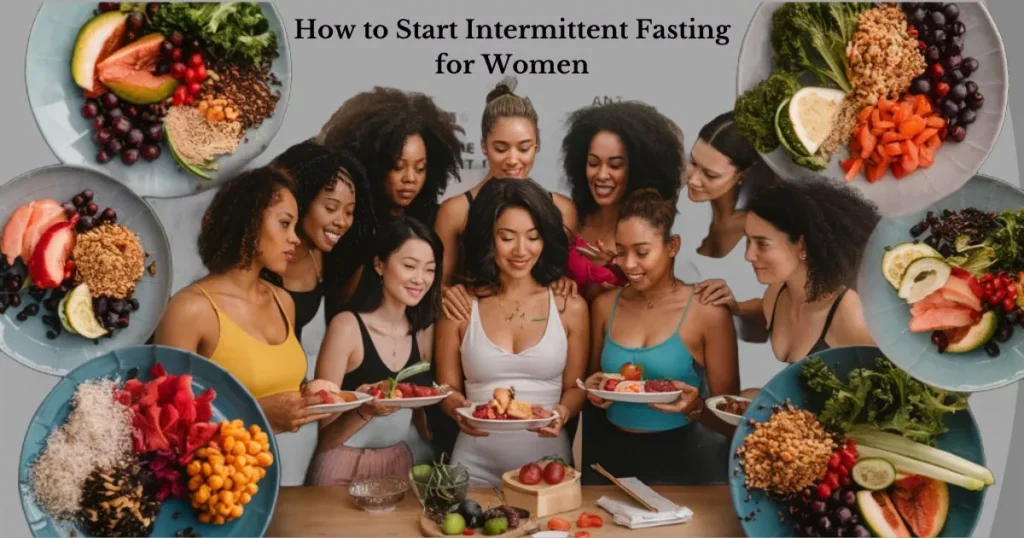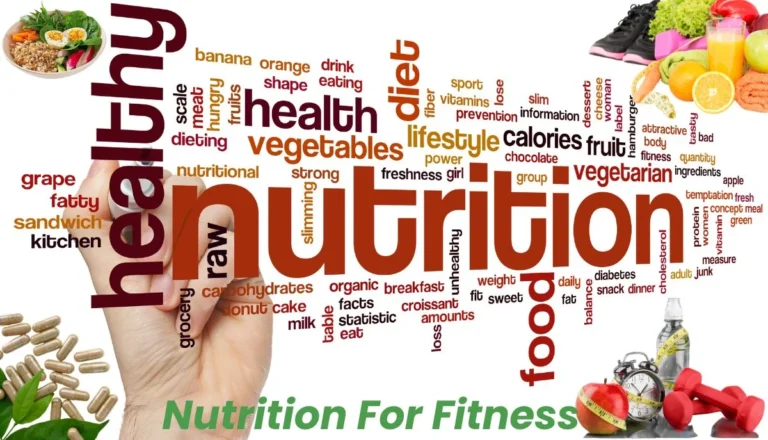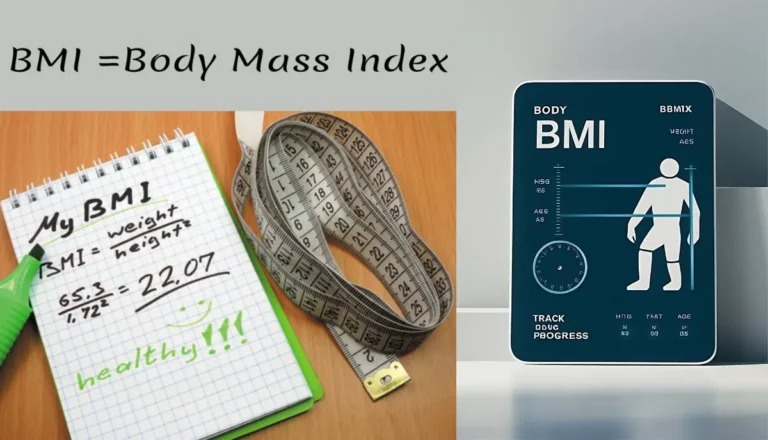Disclaimer: I have affiliate links in this post and I receive a commission on any purchases you make at no cost to you. It’s one of the ways I support my site.
Did you know that nearly 70% of women who try intermittent fasting see big improvements in their health? This method is more than just about losing weight. It’s a way to improve your mind, body, and overall health.
Women are now embracing fasting methods like the 16/8 or the 5:2. It’s not just a trend. It’s a lifestyle change that helps women take control of their health. It also helps them understand their unique health needs.
Introduction to Intermittent Fasting
Intermittent fasting means eating in cycles, alternating between eating and not eating. It focuses on when to eat, not just how much. Many people like it for its health perks, like the benefits of intermittent fasting.
Some fast for at least 12 hours a day, which includes their night’s sleep. Others choose alternate-day fasting. They eat normally most days but skip food for one or two days a week.
It’s important to eat healthy during the times you can eat. Eating fruits, veggies, whole grains, lean meats, plant proteins, and low-fat dairy helps a lot. This way, you might lose weight by eating smaller meals and staying balanced.
Even though many talk about its benefits, there’s not much research on how it helps with chronic diseases. If you’re thinking about trying it, talk to your doctor first. They can help if you’re on medication or have health issues. Choosing a fasting plan that fits your lifestyle can make it easier to stick with.
What is Intermittent Fasting for Women?
Intermittent fasting for women is about different methods made for women’s unique needs. It takes into account the changes in hormones like estrogen and progesterone. This helps women get the most health benefits from fasting.
Popular ways include alternate-day fasting, the 5:2 diet, and daily time-restricted fasting. These methods let women choose what works best for them. Studies show that alternate-day fasting can help with weight loss, just like a low-calorie diet. It may also reduce inflammation, which could help with arthritis and Alzheimer’s disease.
Starting a new diet can cause side effects like hunger, tiredness, and trouble sleeping, especially at first. These usually go away as the body gets used to it. Women should be careful when trying intermittent fasting, especially if they’re pre-menopausal. Hormonal changes can affect their mood and menstrual cycle.
It’s a good idea for women to start with a 12-hour fast and then move to 16 hours if they can. This can be adjusted based on their menstrual cycle to avoid upsetting hormonal balance. Eating well during the times you’re not fasting is also key. This ensures you get all the vitamins and minerals you need.
Benefits of Intermittent Fasting for Women

Intermittent fasting offers many benefits for women’s health, both physical and mental. It helps with weight management and boosts metabolic health. It also improves cognitive function.
Weight Management and Fat Loss
For women looking to manage their weight and lose fat, intermittent fasting is a good choice. Women over 60 who followed a daily 16/8 plan lost an average of 2 kilograms (4.5 pounds) in six weeks. Alternate-day fasting studies found that overweight people lost 5-6% of their body weight. Their waists shrank by 5-7 cm after 8 to 12 weeks.
This shows how intermittent fasting helps women use stored fat for energy. It’s a powerful way to lose weight.
Improved Metabolic Health
Intermittent fasting also improves metabolic health. It can lower cholesterol levels, blood pressure, and signs of insulin resistance. Even without weight loss, both types of fasting can make insulin more sensitive, lowering the risk of type 2 diabetes.
Research also shows that it can reduce chronic inflammation. This is a major risk factor for heart disease.
Mental Clarity and Cognitive Function
Intermittent fasting can make you feel mentally clearer and improve your cognitive function. Hormonal changes during fasting can increase brain-derived neurotrophic factor (BDNF). This is important for memory and learning.
Studies on animals suggest that it can help grow new brain cells and protect brain health. It may also delay or reduce the severity of diseases like Alzheimer’s.
| Benefit | Description | Supporting Data |
|---|---|---|
| Weight Loss | Helps utilize fat as energy, leading to a loss in body fat. | 2 kg loss in 6 weeks for women over 60 on a 16/8 plan. |
| Metabolic Improvement | Enhances cholesterol, blood pressure, and insulin sensitivity. | 5-6% body weight loss in 8-12 weeks with alternate-day fasting. |
| Cognitive Benefits | Increased BDNF levels are linked to better cognitive function. | Increased BDNF levels linked to better cognitive function. |
Intermittent Fasting Methods and Schedules
Intermittent fasting offers many methods and schedules. This lets people pick what fits their life and goals best. The 16/8 fasting method is very popular because it’s simple and works well. Knowing about these methods helps women make better choices for their diets.
16/8 Method Explained
The 16/8 method means fasting for 16 hours and eating during an 8-hour window. This has helped many people eat fewer calories and lose weight. A study found that those following this method ate about 350 fewer calories a day. This led to losing around 3 pounds on average. It’s a good choice for women who want to lose weight but have busy lives.
5:2 Diet and Alternate-Day Fasting
The 5:2 diet lets you eat normally for five days and eat less on two days (about 500–600 calories). Studies show it can lead to weight loss similar to other diets. Alternate-day fasting means fasting every other day. While it shows promise, it hasn’t proven to be as effective as steady calorie cutting. These methods offer flexibility for those trying different fasting ways.
Choosing the Best Intermittent Fasting Schedule for Women
Choosing the right intermittent fasting schedule is key. It should match your daily life, energy levels, and weight loss goals. Women might want to try different fasting methods to see what works best for them. It’s important to listen to your body and adjust as needed to stay healthy while fasting.
| Fasting Method | Eating Days | Fasting Days | Caloric Intake |
|---|---|---|---|
| 16/8 Method | 8 hours | 16 hours | N/A |
| 5:2 Diet | 5 days | 2 non-consecutive days | 500–600 calories |
| Alternate-Day Fasting | Varies | Every other day | N/A |
How to Start Intermittent Fasting for Women

Starting intermittent fasting can seem daunting, especially for women new to it. It’s key to start slowly and increase fasting times gradually. This helps your body adjust without making you too hungry. Drinking water or herbal tea during fasting helps control hunger and makes fasting easier.
Tips for Getting Started
- Begin with a 12-hour fast from dinner to breakfast, allowing the body to acclimate.
- Expand fasting hours over time, moving to a 14 or 16-hour window as comfort increases.
- Monitor hunger cues and adjust fasting times based on personal experiences.
- Consider the menstrual cycle’s impact on fasting. You may need to adjust your routine during its phases.
- Stay versatile and flexible; the goal is to develop a sustainable fasting approach.
Creating an Effective Eating Plan
An effective eating plan is key to making the most of intermittent fasting. Focus on whole foods like fruits, veggies, lean proteins, and healthy fats. This ensures you get the energy you need and supports your health. Planning your meals can help you avoid eating on impulse and keep your fasting schedule in check.
Here’s a simple plan to get you started:
| Meal Type | Food Examples |
|---|---|
| Breakfast | Oatmeal topped with berries and nuts |
| Lunch | Grilled chicken salad with olive oil dressing |
| Dinner | Quinoa with steamed vegetables and salmon |
| Snacks | Greek yogurt or a handful of almonds |
Creating meals that are both nutritious and satisfying can help you stick to intermittent fasting. With the right tips and a good eating plan, women can enjoy the health benefits of this practice.
Adjusting Intermittent Fasting During the Menstrual Cycle

The menstrual cycle affects how women experience intermittent fasting. Knowing how hormones change during the cycle helps tailor fasting plans. We need to adjust fasting during the follicular and luteal phases. This will keep it effective and comfortable.
Follicular Phase Strategies
In the follicular phase, estrogen levels go up. This makes it easier to fast longer without feeling bad. Women can try fasting for 12 or 14 hours around day three of their period. Eating nutrient-rich foods during eating times boosts energy.
- High-intensity workouts match well with the energy boost.
- Healthy fats and proteins are key for nutrition.
- Listening to your body during fasting keeps things balanced.
Luteal Phase Adjustments
When moving into the luteal phase, hormone changes might mean adjusting your fasting plan. With less estrogen and more progesterone, you might crave carbs more. Shortening your fast or adding healthy carbs can help keep your energy up. Knowing these changes makes fasting more enjoyable.
- Try fasting for 10-12 hours to keep your energy steady.
- Add complex carbohydrates to meet your cravings.
- Prioritize self-care to feel good and reduce discomfort.
Intermittent Fasting for Women Over 50

Women over 50 often face challenges like hormonal changes and a slower metabolism. Intermittent fasting can be a great way to handle these issues. It helps with weight management and boosts overall health and well-being.
Challenges and Benefits
Women over 50 may struggle with weight gain and changes in body shape, especially around the midsection. Fasting can improve metabolic health, helping to fight these problems. It makes insulin more effective and lowers fasting blood sugar levels.
Older adults need more protein to keep their muscles strong. Experts suggest 1.2 to 2.0 grams of protein per kilogram of body weight. So, a 140-pound woman should aim for 76 to 127 grams of protein a day. This is crucial during fasting periods.
How Fasting Can Alleviate Menopausal Symptoms
Many women over 50 deal with hot flashes and mood swings during menopause. Fasting can help ease these symptoms. It boosts insulin sensitivity and balances hormones. This can reduce insomnia, anxiety, and depression.
Studies show that fasting not only aids in weight loss but also lowers inflammation. This may reduce the risk of heart disease in older women. After fasting, eating a meal with 40 to 50 grams of protein is best. This helps maximize fasting benefits and keeps muscles strong.
Common Concerns and Considerations

More people are looking into the safety of intermittent fasting, especially for women. It’s important to think about your health and lifestyle before trying it out. Always talk to a healthcare professional before starting any fasting plan to ensure it’s safe for you.
Is Intermittent Fasting Safe for Women?
Whether intermittent fasting is safe depends on your health. Women who are pregnant, nursing, or have eating disorders should be careful. Fasting can lead to issues like:
- Irregular periods and low libido
- Changes in hormone levels, like estrogen and progesterone
- Disruptions in menstrual cycles
Some people might feel tired, irritable, or have headaches while fasting. It’s smart to talk to a healthcare expert. They can help you make a fasting plan that fits your health needs.
Consulting Healthcare Professionals
Talking to healthcare professionals is key when thinking about intermittent fasting. This is crucial for:
- Women of childbearing age
- People with diabetes
- Those with eating disorders
Getting advice from a healthcare pro means you get tips that fit your health and nutrition needs. Eating nutrient-rich foods during your eating times is important. Understanding intermittent fasting well helps women make choices that are good for their health goals.
Intermittent Fasting Success Stories
Many women have changed their lives with intermittent fasting. They share inspiring stories of health improvements and lifestyle changes. These stories show amazing weight loss and better well-being and confidence.
Real-Life Transformations
Martine Etienne-Mesubi is a great example of intermittent fasting’s power. She started at 225 pounds and lost 80 pounds in 15 months, ending at 145 pounds. She followed an 18-hour fast with a 6-hour eating window, then moved to eating one meal a day. Sometimes, she even fasted for up to 72 hours.
Her journey started in 2015 and helped her keep a healthy weight since 2018.
Melissa also had a big success story, losing over 100 pounds in 10 months. She was 238 pounds in June 2021 and got down to 136 pounds by March 2022. Her blood pressure got much better, showing how fasting can improve health.
Jen lost 46 pounds in four months, starting at 174.6 pounds in January 2021. She used 16:8 and then 22:2 fasting schedules. She felt more energetic and slept better, showing fasting’s wide-ranging benefits.
Lessons Learned from Participants
People who fast share important lessons for others starting out. They stress the need for sticking to it and eating well, with foods like leafy greens and nuts. Their stories have created a supportive community for those trying to improve their health with fasting.
Women like Martine, Melissa, and Jen show the importance of being flexible with their fasting. Martine kept her weight off during holidays by changing her eating times. This flexibility is key for keeping up with fasting in the long run. Their stories give newcomers the confidence to try fasting and see great results.
| Name | Initial Weight (lbs) | Current Weight (lbs) | Total Weight Loss (lbs) | Timeframe (months) |
|---|---|---|---|---|
| Martine Etienne-Mesubi | 225 | 145 | 80 | 15 |
| Melissa | 238 | 136 | 102 | 10 |
| Jen | 174.6 | 128.6 | 46 | 4 |
Intermittent Fasting Tips for Women

Intermittent fasting has many benefits but can be tough for women. It’s important to have a plan to deal with cravings, energy drops, and social events. Here are some tips to help women succeed with intermittent fasting.
Overcoming Challenges
Many women find it hard to start intermittent fasting. Snacking cravings can be strong at first. Drinking water or herbal tea can help control these cravings and stay fast.
It’s also hard in social situations. Planning meals ahead for events can help. Eating a healthy snack before going out can also help manage hunger and prevent overeating. Finding a fasting schedule that fits your life can make it easier to stick with it.
Maintaining a Healthy Diet During Fasting
Choosing the right fasting food choices is key to staying energized and healthy. Eating well during your eating windows is important. Here are some tips for a healthy diet during fasting:
- Protein: Try to eat at least 100 grams a day to keep your muscles strong.
- Complex Carbohydrates: Whole grains, beans, and veggies give you energy that lasts.
- Healthy Fats: Add avocados, nuts, and olive oil to your meals for fullness.
- Hydration: Drinking enough water helps control hunger.
Start with shorter fasts like a 12-hour one and slowly increase to 16/8. Eating nutrient-rich meals can make fasting work better for you. These intermittent fasting tips for women can help. They can overcome challenges and improve the fasting experience..
| Food Group | Healthy Options | Benefits |
|---|---|---|
| Protein | Chicken, fish, eggs, legumes | Retains muscle mass, promotes satiety |
| Carbohydrates | Quinoa, oats, brown rice, sweet potatoes | Provides sustained energy |
| Fats | Nuts, seeds, olive oil, avocado | Supports hormonal balance, promotes fullness |
Conclusion
As we conclude our discussion on intermittent fasting for women, it’s clear it’s more than just for losing weight. It boosts metabolic health, improves mental focus, and may ease menopause symptoms. For example, alternate-day fasting can make insulin work better and help keep a healthy weight.
Women starting intermittent fasting can choose from methods like the 16/8 or modified alternate-day fasting Studies show that sticking with it can lead to better health. It’s important to eat well during the times you do eat.
Interruption fasting can be a powerful tool for women to improve their health and minds. By looking at research and personal stories, women can see its benefits. Trying it out could lead to a healthier life and better overall wellness.
Frequently Asked Questions
Q: What are the health benefits of intermittent fasting for women?
A: Intermittent fasting has been shown to help improve metabolic health, enhance brain function, and reduce inflammation. It can help you lose weight, improve heart health, and may extend your lifespan.
Q: How can intermittent fasting help you lose weight?
A: Intermittent fasting can help you lose weight. It does this by limiting your eating time each day. This leads to a natural reduction in calories. Also, fasting affects hormone levels. This can boost your metabolism and fat burning.
Q: Are there different types of intermittent fasting?
A: Yes, there are types of intermittent fasting. One is the 16/8 method. You fast for 16 hours and eat in an 8-hour window. Another is the 5:2 diet. You eat normally for five days and restrict calories for two.
Q: Is intermittent fasting right for people over 50?
A: People over 50 can try intermittent fasting. But, they should consult a healthcare provider first. Fasting can help with health and weight. But, it must suit individual health needs.
Q: What are some pros of intermittent fasting for women?
A: Intermittent fasting can benefit women. It can help with weight loss, metabolic health, mental clarity, and inflammation. Finding an intermittent fasting type that suits your lifestyle and health goals is important.
Q: Who shouldn’t try intermittent fasting?
A: Pregnant or breastfeeding women, and those with a history of eating disorders, should not try intermittent fasting. It is also not recommended for people with certain medical conditions unless supervised by a doctor. Always consult a healthcare provider before starting an intermittent fasting regimen.
Q: How does intermittent fasting affect women’s hormones?
A: Intermittent fasting affects women’s hormones that regulate hunger and metabolism. These include insulin, leptin, and ghrelin. Fasting may affect menstrual cycles and fertility. So, women should weigh these factors and consult a doctor.
Q: Can intermittent fasting be combined with other diets?
A: Yes, intermittent fasting can be combined with other diets such as ketogenic, paleo, or vegan diets. The key is to eat nutritious, balanced food during eating hours. This will maximize the health benefits of intermittent fasting.
Q: How quickly can you see weight loss results with intermittent fasting?
A: While results can vary, some individuals may start to see weight loss results within a few weeks of following an intermittent fasting plan. Consistency and combining fasting with a healthy diet can enhance the effectiveness of this weight loss method.
Q: What should one consider before starting an intermittent fasting diet?
A: Before starting an intermittent fasting diet, it’s crucial to assess your health status, lifestyle, and wellness goals. Consulting a healthcare provider can help. They can see if intermittent fasting is right for you. They can also provide personalized guidance and support.








